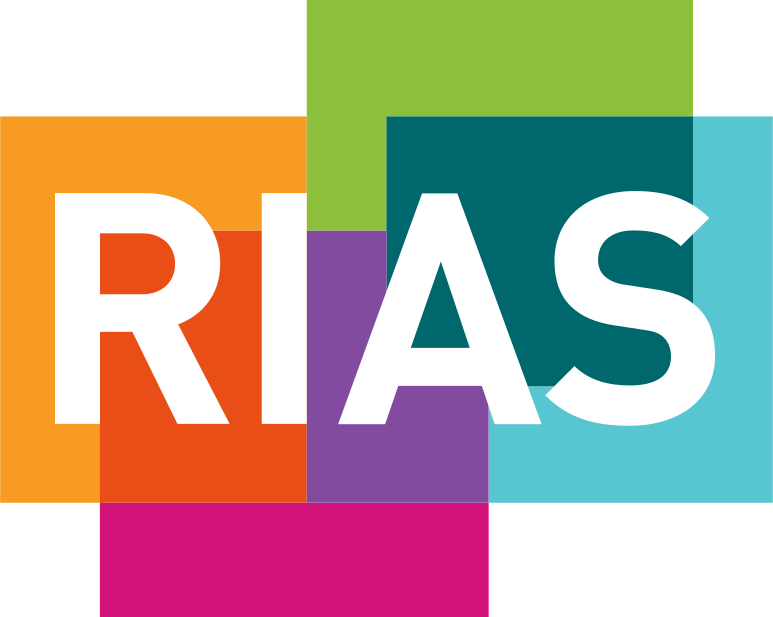Fraud and fair processing of your information
Rias is dedicated to treating customers fairly and is committed to tackling fraud to protect the public and the interests of genuine policyholders. Fraudulently claiming on insurance is not a ‘victimless’ crime. According to the Association of British Insurers, the value of detected fraud is in excess of £1 billion and undetected insurance fraud is estimated to cost the UK economy more than £2 billion a year* This adds around £50 to the premiums of honest policyholders*. We try to avoid passing on that cost to our genuine customers by fighting hard to prevent insurance fraud.
What is fraud?
There are several definitions of fraud but they all agree to it being a wrongful or criminal deception intended to result in financial or personal gain. In insurance, it is probably helpful to provide some examples of what we will treat as fraud. Below is a selection of typical examples from insurance, but it is not intended to be an exhaustive list.
We will treat as fraud where a policyholder deliberately conceals from us details of:
- Previous motoring convictions on motoring related policies
- Previous criminal convictions when asked about them on any policy
- Claims made under any policy when asked about them
- Actions by insurers to cancel or void a policy
- The true address for the person taking insurance cover
Or provides false details about:
- How the vehicle is used, for example when the vehicle is being used for business purposes but we are told it is used only for pleasure purposes only
- The value of items to be insured, for example on home or travel policies
- The main user of a car. For example, when the true main user is someone other than the policyholder, such as a son or daughter
- The number of years no claims bonus entitlement
- The questions we ask during the quotation process. For example, date of birth or occupation of any of the drivers named on the policy
- The type or validity of the driving license they or any of the drivers hold
How does Rias help prevent and deal with fraud?
We check external fraud prevention agencies, databases and undertake credit searches at:
- Application stage
- Shortly after the policy start date
- At the time of any policy change
- At renewal
- When a claim is made
We may ask for:
- A vehicle registration certificate (known as the V5C)
- A valuation for specified items
- Driving licence including the counterpart for each driver named on the policy
- Proof of residency at an address
- Proof of ownership of any item to be insured
- Proof of your No Claims Bonus
When we discover fraud we will:
- Declare the policy void from the time the fraudulent act took place. This means we will treat the policy as never having been in force and may result that you are not covered in the event of a claim.
- Share our data for fraud prevention purposes with the wider financial services industry, such as banks and building societies. This could make it more expensive for fraudsters to buy insurance in the future and they may find it difficult to get a mortgage or bank loan for example.
How does Rias use data to help detect and prevent fraud?
To protect the interests of our policyholders and to prevent and detect fraud, we may at any time:
- Share information about you with the Police, other insurance companies and government agencies such as the Driver & Vehicle Licensing Agency (DVLA), Department for Work & Pensions (DWP) and Her Majesty's Revenue & Customs (HMRC);
- Check and/or file your details with fraud prevention agencies and databases; and
- Undertake credit searches and other searches to verify your details
If you provide false or inaccurate information and fraud is identified, details will be passed to fraud prevention agencies and databases to prevent fraud and money laundering. The police and other law enforcement agencies may access and use this information.
How we help prevent fraud
We are committed to keeping premiums low by using tools and dedicated fraud resources. To enable us to do this we:
- Have a team of fraud specialists to help protect you against insurance fraud now and in the future.
- Train our employees
- Use the latest technology to detect fraud
- Prosecute fraudsters
We will:
- Look at every insurance application to detect and prevent fraudsters obtaining cover in the first instance
- Check proof of No Claims Discount
- Examine policy changes to recognise suspicious policy activity mid-term fraud
- Share information about policyholders and claimants with other organisations and public bodies including the Police
We and other organisations access and use information to prevent fraud and money laundering, for example, when:
- Checking details on applications for credit and credit-related or other facilities
- Managing credit and credit-related accounts or facilities
- Recovering debt
- Checking details on proposals and claims for all types of insurance; and checking details of job applicants and employees
We and other organisations may also access and use from other countries the information recorded by fraud prevention agencies.
If a claim made under any Rias policy is fraudulent in any respect, all benefits under the Policy may be forfeited.
If you would like details of the relevant fraud prevention agencies and databases we access or contribute to, please contact us at:
Deansleigh House
Deansleigh Road
Bournemouth
Dorset
BH7 7DU
Or by Email: customerrelations@rias.co.uk
How do I report fraud?
If you believe fraud is being committed, please contact the Ageas Fraud Cheatline on 0345 168 5674 or email intel@ageas.co.uk.)
If you wish to report general insurance fraud, please contact the Insurance Fraud Bureau Cheatline on 0800 422 0421.
Some useful tips to combat identity fraud
Criminals commit identity theft by stealing your personal information. This is often done by taking documents from your rubbish or by making contact with you and pretending to be from a legitimate organisation.
Protect yourself against identity fraud
- Don't throw out anything with your name, address or financial details without shredding it first.
- If you receive an unsolicited email or phone call from what appears to be your bank or building society asking for your security details, never reveal your full password, login details or account numbers. Be aware that a bank will never ask for your PIN or for a whole security number or password.
- If you are concerned about the source of a call, wait five minutes and call your bank from a different telephone making sure there is a dialling tone.
- Check your statements carefully and report anything suspicious to the bank or financial service provider concerned.
- Don't leave things like bills lying around for others to look at.
- If you’re expecting a bank or credit card statement and it doesn’t arrive, tell your bank or credit-card company.
- If you move house, ask Royal Mail to redirect your post for at least a year.
- It is particularly helpful to check your personal credit file 2-3 months after you have moved house.
Other useful links
www.citizensadvice.org.uk
www.fca.org.uk
www.actionfraud.police.uk
*ABI Insurance Fraud Taskforce, Jan 2016.
https://www.gov.uk/government/uploads/system/uploads/attachment_data/file/494105/PU1817_Insurance_Fraud_Taskforce.pdf

